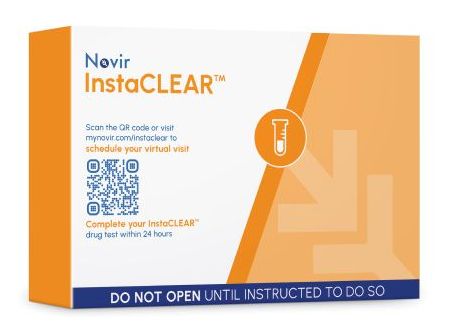Are you operating within compliance of the new extension?
The Federal Motor Carrier Safety Administration (FMCSA) extended and expanded the first-ever national Emergency Declaration through Feb. 28, 2021. It provides direct assistance for commercial drivers and carriers who support COVID-19 emergency relief efforts by waiving hours of service regulations. Find out more about the emergency relief extension.
The FMCSA also issued an Enforcement Notice on Dec. 15. It gives commercial motor vehicle (CMV) drivers operating under Emergency Declaration No. 2020-002 more time to renew expiring CDLs, commercial learner’s permits, and medical cards during the pandemic.
The FMCSA extended the deadline because backlogs exist at some State Driver’s License Agencies (SDLA) across the country. Additionally, a resurgence of stay-at-home orders and other emergency measures create further economic and logistical disruptions. The notice became effective on Jan. 1, 2021, and will expire on Feb. 28, 2021.
Since its implementation last March, the Emergency Declaration has undergone several modifications. As a result, drivers and carriers across the country remain confused and continue to ask questions. Tim Thoelecke, Jr., founder of InOut Labs, a full-service C/TPA, shares his answers to the most frequently asked questions.
What does the extension cover?
The FMCSA’s national Emergency Declaration extends direct assistance to carriers and CMV drivers who support COVID-19 emergency relief efforts. It waives hours of service regulations. In simple terms, Hours of Service (HoS) rules no longer apply to certain shipments.
Drivers receive relief from parts 390 through 399 of the Title 49 Code of Federal Motor Carrier Safety Regulations (FMCSR). However, there are key exceptions:
- CMV drivers who can safely operate a motor vehicle while transporting essential supplies designated in the national emergency declaration may continue working beyond standard hours of service.
- Drivers who provide relief assistance may return to their terminals with an empty trailer under the exemption.
- Drivers transitioning from emergency relief efforts to normal operations must take a minimum of 10 consecutive hours off-duty. This applies if their total work time, whether for emergency relief or a mix of emergency and normal operations, reaches 14 hours.
Emergency relief does not include exemptions from FMCSA regulations related to CMV safety. For example, controlled substance and alcohol testing, financial responsibility requirements, CDL requirements, and operation of a CMV while ill or fatigued remain mandatory. Additionally, size and weight requirements and other regulations outlined in the declaration still apply.
Who qualifies?
The extended and expanded Emergency Declaration, announced on Dec. 17, 2020, limits relief efforts for those carriers and drivers directly involved in the transportation of “Essential cargo,” specifically:
- Livestock and livestock feed;
- Medical supplies and equipment related to the testing, diagnosis and treatment of COVID-19 such as vaccines, supplies/kits for the administration of vaccines;
- Supplies and equipment necessary for community safety, sanitation, and prevention of community transmission of COVID-19 including masks, gloves, masks, hand sanitizer, soap and disinfectants, etc.
- Food, paper products and other groceries for emergency restocking of distribution centers or stores.
Motor carriers must not require or allow fatigued drivers to operate. Drivers who inform a carrier that they need immediate rest must be given at least 10 consecutive hours before they are required to return to service.
It is important for employers and owner operators to understand that drivers whose loads do not fall into the essential categories should follow the FMCSA’s regulations prior to the changes resulting from the COVID-19 pandemic. Additionally, mixed loads with only a nominal quantity of qualifying emergency relief are not covered.
Do carriers or drivers need documentation verifying that they are compliant with the Emergency Declaration’s exemption?
There is no specific documentation required for verification. Retention of ordinary business records, such as the bill of lading, may be useful for the convenience of the motor carrier and driver, to document use of the exemption during a future inspection or enforcement action.
InOut Labs encourages everyone to review the applicability, restrictions, and limitations which are included in the exemption online. If you have specific questions, about the exemption or how it’s applied, you can contact InOut Labs for more information. As a full-service C/TPA, we are well-versed in the FMCSA’s Emergency Declaration as well as standard requirements.
InOut Labs is a full-service C/TPA, providing complete turnkey compliance systems including comprehensive drug testing packages, random consortium pooling, supervisor & driver education, record keeping materials and more. Call us today at 833.723.7997.
Find out how you can make InOut Labs your C/TPA of choice. We make testing painless.
Other posts you may like:
The Cost of FMCSA Clearinghouse Noncompliance
Which Employers are covered under DOT Drug & Alcohol Testing Regulations?
The Cost of Clearinghouse Noncompliance Could Be Your Business


